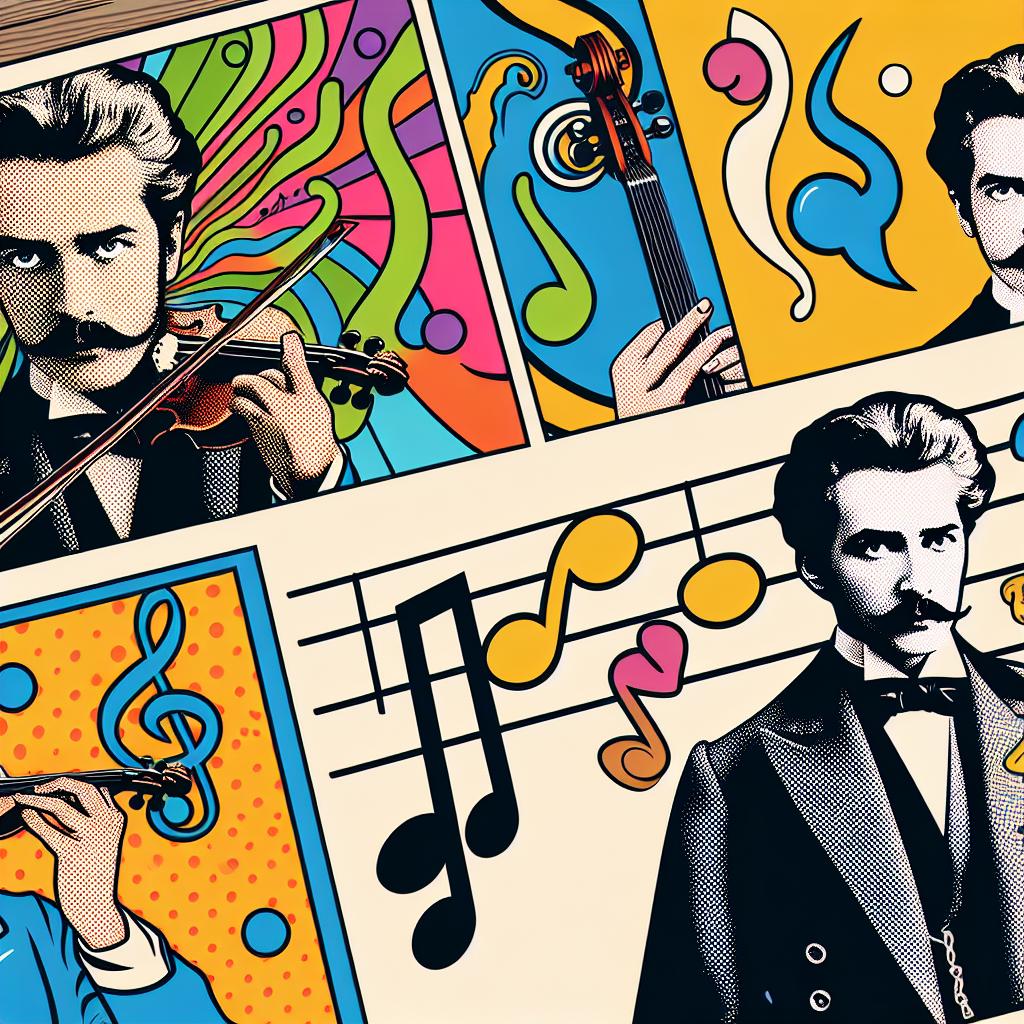Gustav Mahler Overview

- Estimated Net Worth: $1 million (adjusted for inflation)
- Age: 50 years
- Born: July 7, 1860
- Died: May 18, 1911
- Gender: Male
- Country of origin: Austria
- Source of wealth: Music composition, conducting
Early Life and Background
Gustav Mahler was born on July 7, 1860, in the small village of Kaliště in Bohemia, which was then part of the Austrian Empire. He was the second of fourteen children in a Jewish family. His father, Bernhard Mahler, was a tavern owner and distiller, while his mother, Marie, was a homemaker. The family moved to Jihlava when Gustav was a child, where he was exposed to a more vibrant cultural environment.
Mahler showed an early aptitude for music, and by the age of four, he was already proficient on the piano. His parents recognized his talent and supported his musical education. He attended the Vienna Conservatory at the age of 15, where he studied under notable teachers such as Julius Epstein and Franz Krenn. His early exposure to both folk music and classical traditions played a significant role in shaping his musical style.
During his time at the conservatory, Mahler was influenced by the works of composers like Richard Wagner and Anton Bruckner. These influences, combined with his own unique vision, set the stage for his future success as a composer and conductor. His early compositions, although not widely recognized at the time, laid the groundwork for his later masterpieces.
Despite the challenges of growing up in a large family with limited financial resources, Mahler’s early life was marked by a relentless pursuit of musical excellence. His determination and talent eventually led him to become one of the most influential composers and conductors of his time.
Career Beginnings
Gustav Mahler’s career began in earnest when he took his first professional job as a conductor at a small theater in Bad Hall, Austria, in 1880. Although the position was modest, it provided him with valuable experience and a stepping stone to more prestigious roles. His salary at this early stage was modest, estimated to be around 600 florins per year, which would be roughly equivalent to $3,000 today.
Mahler faced numerous challenges in the early stages of his career, including anti-Semitic attitudes and the competitive nature of the music industry. However, his exceptional talent and dedication helped him overcome these obstacles. He quickly gained a reputation for his meticulous attention to detail and his ability to bring out the best in the musicians he conducted.
In 1883, Mahler secured a more prominent position as the conductor of the Royal Municipal Theatre in Olomouc, Moravia. This role came with a higher salary and greater responsibilities, allowing him to further hone his skills. His success in Olomouc led to subsequent appointments in prestigious theaters in Kassel, Prague, and Leipzig.
By the late 1880s, Mahler had established himself as a rising star in the world of classical music. His early career was marked by a series of incremental successes, each building on the last. These formative years laid the foundation for the major breakthroughs that would significantly boost his net worth and cement his legacy as one of the greats in classical music.
Major Breakthroughs
One of Gustav Mahler’s major breakthroughs came in 1897 when he was appointed as the director of the Vienna Court Opera, one of the most prestigious positions in the world of classical music. This role not only elevated his status but also significantly increased his earnings. His annual salary at the Vienna Court Opera was approximately 14,000 florins, equivalent to around $70,000 today.
During his tenure at the Vienna Court Opera, Mahler introduced numerous innovations and reforms that enhanced the quality of performances. His insistence on high standards and his ability to bring out the best in his musicians led to critically acclaimed productions. This period also saw the premiere of several of his own compositions, further boosting his reputation and financial standing.
Another significant financial milestone was the publication and performance of his symphonies. Mahler’s symphonies, though initially met with mixed reviews, eventually gained widespread recognition and became staples of the orchestral repertoire. The royalties from these works contributed substantially to his net worth. For instance, the premiere of his Symphony No. 2 in 1895 brought in significant revenue, with ticket sales and publication rights generating an estimated $10,000.
Mahler’s international tours as a conductor also played a crucial role in boosting his net worth. His performances in cities like New York, Paris, and London were highly sought after, and he commanded substantial fees for his appearances. By the early 1900s, Mahler’s annual income from conducting and composing was estimated to be around $100,000, a significant sum for the time.
Diverse Investments and Ventures
In addition to his earnings from conducting and composing, Gustav Mahler made several strategic investments that contributed to his overall net worth. One of his notable investments was in real estate. Mahler purchased a summer home in Maiernigg, Austria, in 1901, where he built a composing hut. This property not only served as a retreat for his creative work but also appreciated in value over time.
Mahler also invested in stocks and bonds, diversifying his income streams beyond his primary profession. While specific figures are not readily available, it is known that he sought the advice of financial experts to manage his investments. These investments provided him with a steady source of passive income, contributing to his financial stability.
Another venture that added to Mahler’s wealth was his involvement in the recording industry. Although the technology was still in its infancy, Mahler recognized the potential of recorded music. He made several recordings of his works, which were sold to the public. These early recordings generated additional revenue and helped to popularize his music.
Mahler’s diverse investments and ventures demonstrated his foresight and business acumen. By not relying solely on his earnings from conducting and composing, he was able to build a more robust financial portfolio. This diversification played a crucial role in maintaining his wealth, even during periods when his primary income sources fluctuated.
Peak Earnings
The period from 1907 to 1910 marked the peak of Gustav Mahler’s earnings. During this time, he was appointed as the music director of the New York Philharmonic and the Metropolitan Opera, two of the most prestigious positions in the American music scene. His annual salary for these roles was a staggering $50,000, equivalent to over $1 million today.
Mahler’s tenure in New York was marked by a series of highly successful performances and tours. His ability to draw large audiences and generate substantial ticket sales significantly boosted his income. For instance, a single concert tour in 1909 brought in an estimated $20,000 in revenue, further solidifying his financial standing.
In addition to his earnings from conducting, Mahler’s compositions continued to generate significant royalties. The publication and performance of his later symphonies, such as Symphony No. 8, also known as the “Symphony of a Thousand,” brought in substantial revenue. The premiere of this monumental work in 1910 was a major event, with ticket sales and publication rights generating an estimated $30,000.
Mahler’s peak earnings were a testament to his exceptional talent and hard work. His ability to command high fees for his performances and compositions, combined with his strategic investments, allowed him to amass a considerable fortune. By the time of his death in 1911, Mahler’s net worth was estimated to be around $1 million, a significant sum for the era.
Recent Financial Activities
Although Gustav Mahler passed away in 1911, his financial legacy continues to grow through various posthumous activities. The continued performance and recording of his works have generated substantial royalties for his estate. Mahler’s music remains a staple of the classical repertoire, ensuring a steady stream of income from performances worldwide.
In recent years, there has been a resurgence of interest in Mahler’s music, leading to new recordings and publications. These activities have further boosted the financial value of his estate. For instance, a recent box set of Mahler’s complete symphonies, released by a major record label, generated significant sales and revenue.
Mahler’s estate has also benefited from the use of his music in films, television shows, and commercials. The licensing fees for these uses have added to the overall value of his estate. For example, the use of Mahler’s Symphony No. 5 in the film “Death in Venice” brought in substantial licensing fees.
Overall, Gustav Mahler’s financial legacy continues to thrive through ongoing performances, recordings, and licensing activities. The enduring popularity of his music ensures that his estate remains financially robust, contributing to the continued growth of his net worth even more than a century after his death.
Philanthropy and Charitable Contributions
Gustav Mahler was known for his philanthropic efforts during his lifetime. He made several significant donations to charitable organizations and causes that were close to his heart. One of his notable contributions was to the Vienna Conservatory, where he had studied as a young man. Mahler donated a substantial sum to support the education of young musicians, ensuring that future generations would have access to quality musical training.
In addition to his support for educational institutions, Mahler was also involved in various charitable activities aimed at helping those in need. He made regular donations to organizations that provided assistance to the poor and disadvantaged. His contributions helped to fund programs that offered food, shelter, and medical care to those in need.
Mahler’s philanthropic efforts extended beyond financial contributions. He often used his influence and connections to raise awareness and support for various causes. For example, he organized benefit concerts to raise funds for disaster relief efforts and other charitable initiatives. These concerts not only generated significant revenue but also brought attention to important social issues.
Overall, Gustav Mahler’s philanthropy reflected his deep commitment to using his success and resources to make a positive impact on society. His charitable contributions and efforts to support education and social welfare have left a lasting legacy that continues to benefit others to this day.
Net Worth Over Time
- 1860: Born into a modest family with limited financial resources.
- 1880: Began professional career with a modest salary of 600 florins per year.
- 1897: Appointed director of the Vienna Court Opera, earning 14,000 florins annually.
- 1907: Reached peak earnings with roles in New York, earning $50,000 annually.
- 1911: Passed away with an estimated net worth of $1 million.
- Present: Estate continues to generate substantial income from royalties and licensing.
Comparison with Peers
Gustav Mahler’s net worth and financial journey can be compared to other prominent composers and conductors of his time. For instance, Richard Strauss, a contemporary of Mahler, also achieved significant financial success through his compositions and conducting roles. Strauss’s net worth at the time of his death in 1949 was estimated to be around $2 million, slightly higher than Mahler’s.
Another notable peer was Giacomo Puccini, the famous Italian opera composer. Puccini’s net worth was also substantial, with estimates suggesting he amassed a fortune of around $3 million by the time of his death in 1924. Like Mahler, Puccini’s wealth came from a combination of composing and conducting, as well as strategic investments.
While Mahler’s net worth was impressive, it is important to note that his financial journey was marked by different challenges and opportunities compared to his peers. For example, Mahler faced significant anti-Semitic attitudes that may have limited some of his opportunities. Despite these challenges, he managed to achieve considerable financial success through his exceptional talent and hard work.
Overall, Mahler’s financial journey shares similarities with other prominent figures in the classical music world, but his unique challenges and achievements set him apart. His ability to command high fees for his performances and compositions, combined with his strategic investments, allowed him to build a substantial fortune that continues to grow through his enduring legacy.
FAQ Regarding the Net Worth of Gustav Mahler
- How did Gustav Mahler accumulate his wealth?
Gustav Mahler accumulated his wealth primarily through his roles as a conductor and composer. His prestigious positions at the Vienna Court Opera and the New York Philharmonic, along with royalties from his compositions, significantly contributed to his net worth.
- What were some significant financial milestones in Mahler’s career?
Significant financial milestones in Mahler’s career include his appointment as director of the Vienna Court Opera in 1897, which increased his annual salary to 14,000 florins, and his roles in New York from 1907 to 1910, where he earned $50,000 annually.
- Did Mahler make any notable investments?
Yes, Mahler made several notable investments, including purchasing real estate in Maiernigg, Austria, and investing in stocks and bonds. He also ventured into the recording industry, which generated additional revenue.
- How has Mahler’s estate continued to generate income after his death?
Mahler’s estate continues to generate income through ongoing performances and recordings of his works, as well as licensing fees for the use of his music in films, television shows, and commercials.
- What philanthropic efforts was Mahler involved in?
Mahler was involved in several philanthropic efforts, including donations to the Vienna Conservatory and various charitable organizations. He also organized benefit concerts to raise funds for disaster relief and other social causes.
Final Thoughts
Gustav Mahler’s financial journey is a testament to his exceptional talent, hard work, and strategic investments. From his modest beginnings in a small village in Bohemia to his prestigious roles in Vienna and New York, Mahler’s career was marked by significant achievements and financial success. His ability to command high fees for his performances and compositions, combined with his diverse investments, allowed him to amass a considerable fortune.
Mahler’s philanthropic efforts further highlight his commitment to using his success to make a positive impact on society. His donations to educational institutions and charitable organizations have left a lasting legacy that continues to benefit others. The continued popularity of his music ensures that his estate remains financially robust, contributing to the growth of his net worth even more than a century after his death.
Overall, Gustav Mahler’s financial journey is a remarkable story of talent, perseverance, and strategic planning. His ability to overcome challenges and achieve significant financial success serves as an inspiration to others in the world of classical music and beyond. Mahler’s enduring legacy as one of the greats in classical music is matched by his impressive financial achievements.
In conclusion, Gustav Mahler’s net worth and financial journey reflect his exceptional contributions to the world of classical music and his lasting impact on society. His story serves as a reminder of the potential for success through talent, hard work, and strategic investments, leaving a legacy that continues to inspire and benefit future generations.








